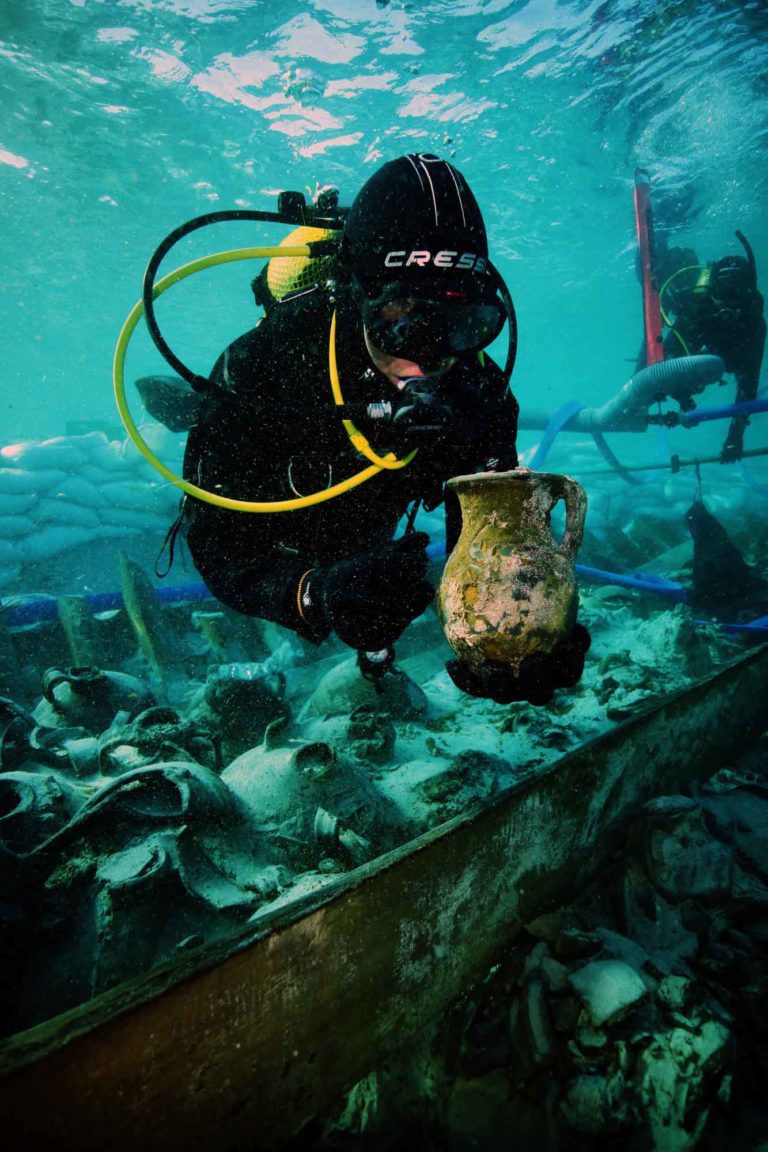Scuba divers have finished raising the contents of a Roman merchant shipwreck in Mallorca – and the experts examining them believe it is one of the best-preserved and significant ancient vessel discoveries in the Mediterranean.
Unusually, many of the 300 clay amphoras found aboard retain not only traces of their contents but their painted inscriptions too.
Also read: 6 Med wrecks checked out on UNESCO mission
The 3rd or 4th-century AD wreck was preserved in sand and, lying only 2m deep just off busy Ca’n Pastilla beach in the Bay of Palma, it seems miraculous that it had remained undisturbed for some 1700 years. However, local divers had been telling the authorities for decades that they suspected something might be buried in the vicinity.
It was a couple spotting some amphora fragments in July 2019 that finally led maritime archaeologists to take action, as reported at the time on Divernet. Now exposed in the wave zone, the wreck was felt to be at risk of storm damage as well as looting, so the site was cordoned off and became part of the Arqueomallornauta project, run by regional authority the Consell de Mallorca and maritime archaeologists from the universities of the Balearic Islands, Barcelona and Cadiz.
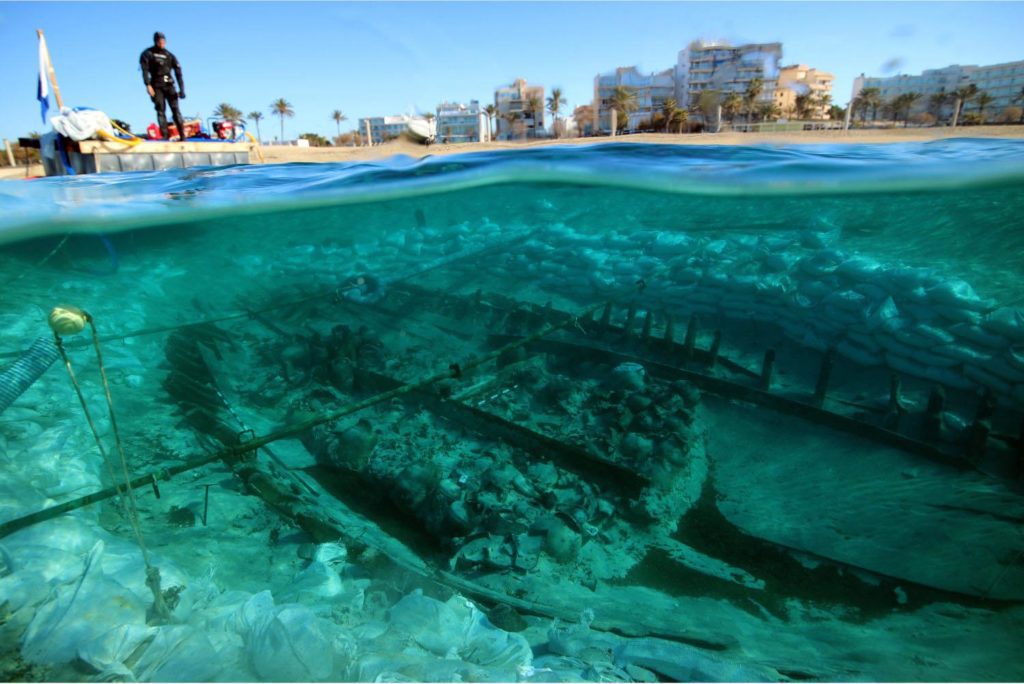
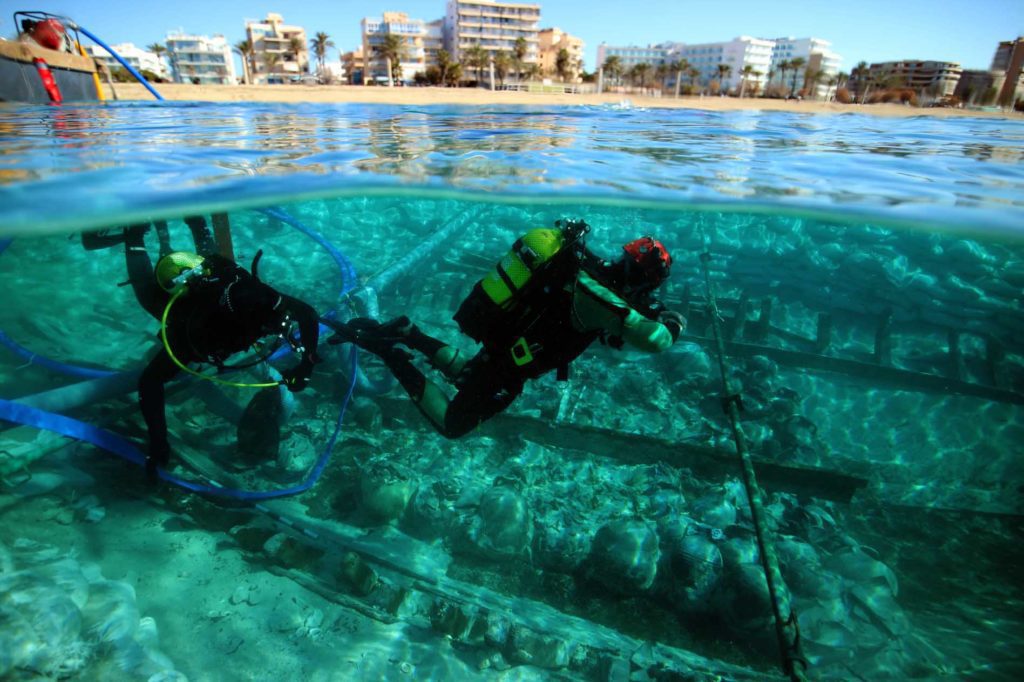
The Covid pandemic intervened but the excavation finally got underway in November 2021, with a team of eight scuba divers working to locate and raise the amphoras and other items for conservation and analysis. The underwater phase of the operation was completed at the end of February.
The 300 amphoras would have carried wine, olives, oil or fish sauce, and 100 of them were found complete with their painted inscriptions, and in some cases Christian signs on their seals.
Also recovered were two intact shoes, one made of leather and the other, espadrille-style, of esparto rope; a cooking pot; an oil lamp bearing the symbol of the goddess Diana; and a woodworking drill.
“This is a virtually unique opportunity to study a complete cargo of the period in the early phase of Late Antiquity, a time when there were few known vessels in the Mediterranean and even fewer with Hispanic cargo,” stated the University of the Balearic Islands.
Now known as the “Ses Fontanelles” wreck, the vessel is thought likely to have anchored at the site, possibly while making a crossing from Spain, and to have sunk when a storm forced it onto rocks. The experts say that the discovery underlines the value of the Balearic islands as a staging post for traders in Roman times.
The vessel was 12m long with a 5-6m beam. The hull has yet to be raised, but features such as cargo bulkheads are intact and the timbers said to remain firm to the touch. Examination of the wood suggests that the ship was built in Spain’s Cartagena region.
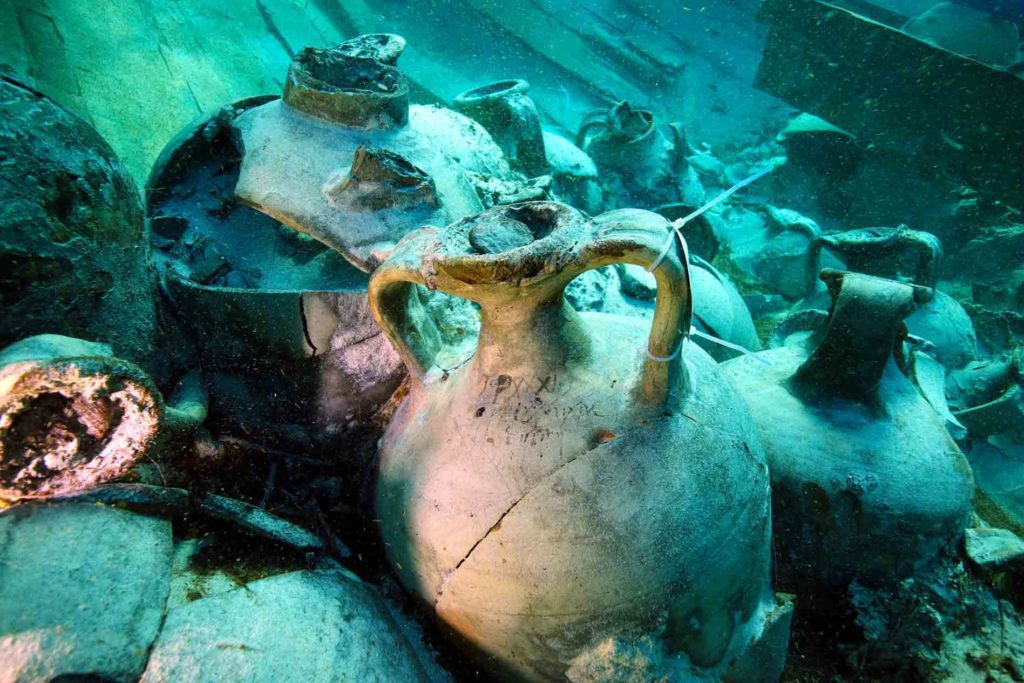
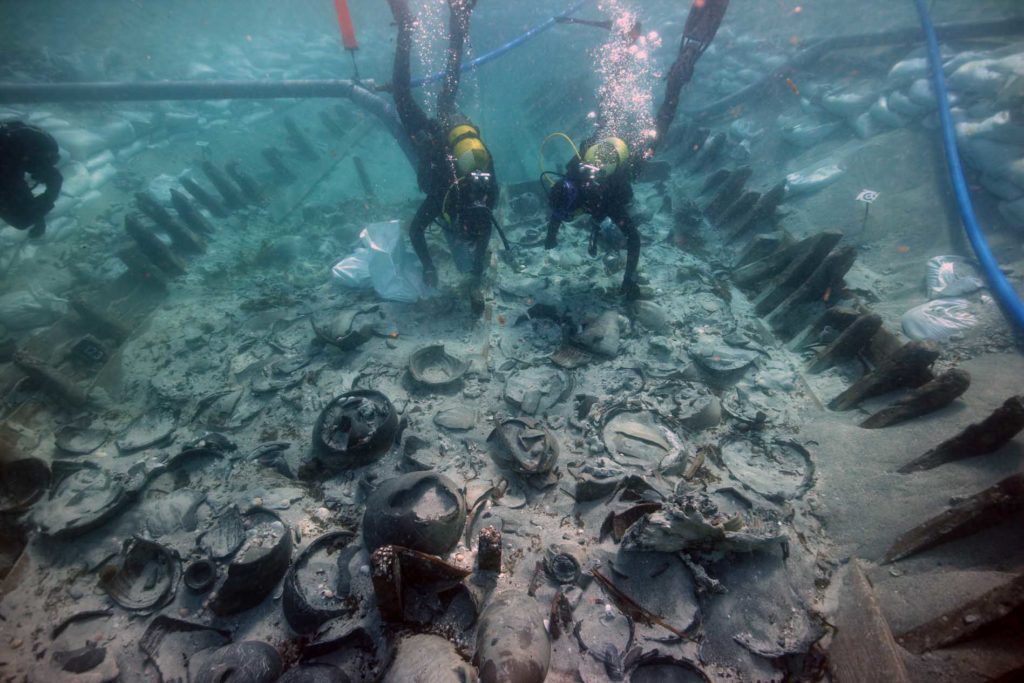
Byzantine shipwreck
Meanwhile, in a less spectacular but still significant find, ceramics from a 5th-6th century Byzantine shipwreck have been excavated east of the Greek island of Fourni in the eastern Aegean.
Unlike the over-exposed Ses Fontanelles wreck, the Fourni site is 43-48m deep in a sandy part of one of the steepest, windiest and most inaccessible regions of the island, which made surveying the wreck difficult.
The number of amphoras was far smaller, with some 15 found buried in the sand, but large numbers of table ceramics were also discovered, as well as timbers from the vessel.
Greece’s Ministry of Culture & Sports said in a recent report on the 2021 excavation season that the site had now been dated to between 480 and 520 AD, and that the ship and its cargo were in an unusually good state of preservation.
